Medically Reviewed by: Dr Amit Shah
A positive pregnancy test can bring a whirlwind of emotions—from joy and excitement to a bit of nervousness about what lies ahead. Alongside pregnancy mood swings and possible morning sickness, you might be wondering: when will you start showing in pregnancy?
Are you already thinking about shopping for maternity clothes, eager to flaunt your growing belly? Or would you rather keep the news private for a bit longer? The timing of when you’ll start showing varies significantly across expectant mothers. Every pregnancy, and every baby bump, is different, and there’s no set timeline that fits everyone.
Mother&Baby spoke to four leading experts to find out when expecting parents typically begin to show, whether it's their first baby or their third, the progression of the pregnancy bump, and when to be concerned.
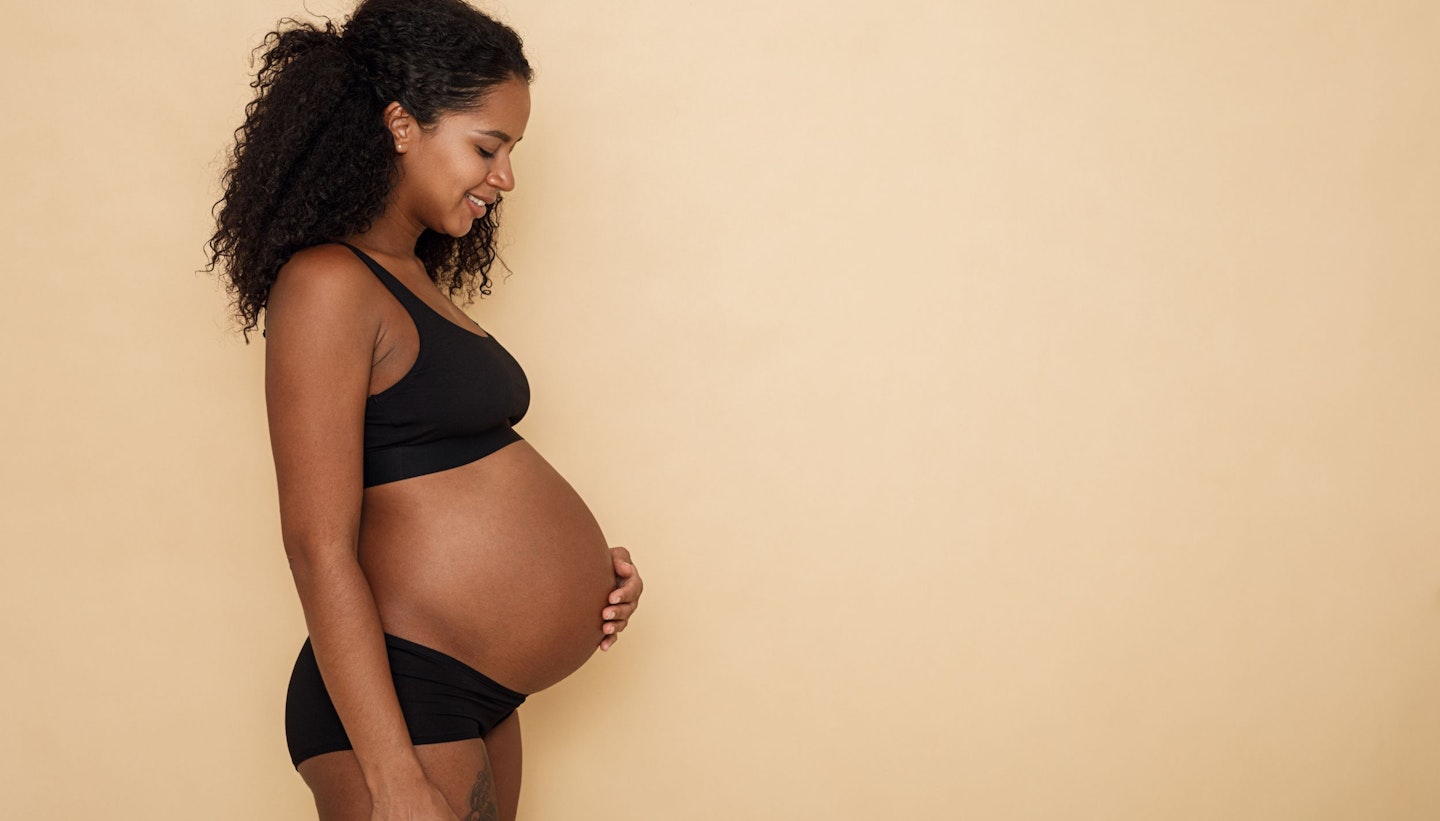
When do you start showing?
“Most women typically start to show a noticeable baby bump between 12 and 16 weeks of pregnancy. This period marks the stage when the uterus has grown sufficiently to extend beyond the pelvis, becoming more prominent,” explains Dr. Amit Shah, leading gynaecologist and co-founder of Harley St. Clinic Fertility Plus.
However, the exact timing can vary widely among individuals due to multiple factors. According to Louise Broadbridge, midwife and founder of Let’s Talk Birth and Baby, "It's unlikely you'll start showing in the first trimester as your baby is still in the very early stages of growing. This time is more about the changes and symptoms you will feel in yourself such as pregnancy tiredness, morning sickness, and other early signs of pregnancy.”
Why do some people show earlier?
It’s easy to compare your bump to other women who are due around the same time, but there could be plenty of reasons for this. “Every woman is different, and so it makes sense that all bumps are not created the same. Women with very strong abdominal muscles may not see a bump until later on in pregnancy due to the uterus being held closer to the body,” Louise says. "Equally, second and subsequent pregnancies can show sooner as the muscles have already stretched before.”
Body type plays a crucial role too. “Women with a slimmer build might show earlier than those with a higher body mass index (BMI) because there is less fat tissue to conceal the growing uterus,” Dr. Amit explains. “The position of the uterus itself can also influence when a bump becomes noticeable.”
Additionally, factors such as age, genetics, and even the position of the baby can affect how and when you start to show. For instance, older mothers might show earlier due to decreased muscle tone, while the way the baby is positioned in the uterus can make a difference in the visibility of the bump.
Why do some women show late?
If it’s your first baby, it will likely take some time to show. Dr. Donald Grant, GP and Senior Clinical Advisor at The Independent Pharmacy, explains, “For first-time mums, baby bumps will show around 13-16 weeks after falling pregnant, giving the body appropriate time to stretch abdominal skin and muscles to compensate for the baby’s size.”
Women carrying extra weight around their stomach may not see their bump as soon as others. Some women don't notice a bump until the third trimester. Additionally, some mums experience what is known as a B belly, where the bump appears to be in the shape of a B. In these cases, it might take until the third trimester for the bump to turn into a more pronounced D-shaped bump.
When do you start to show with a second pregnancy?
It may surprise you to learn that when you’ve already had a baby, you could see your bump sooner the second time around. “For pregnant women not having their first child, a bump can show as early as 12 weeks into the pregnancy. This is largely down to the fact the body has already been stretched before, making baby bumps much more noticeable for subsequent pregnancies,” says Dr. Donald.
When do you start to show when you're pregnant with twins?
If you're pregnant with more than one baby, you can expect to see that baby bump of yours sooner. “It is likely that, as your uterus is having to expand more to accommodate your babies, you will show before the end of your first trimester. All part and parcel of hosting a little party there!” Louise says.
What if you’re not showing and feel like you should be?
“Try not to worry if your bump isn’t showing yet. The position of your uterus can make it easy for your bump to be hidden away and in just the same way can make it easy for it to be seen earlier,” Louise reassures. “It is only later in the second trimester that the growth of your bump will be monitored.” If you're fretting, speak to your midwife.
If you're not showing by your third trimester, it's advised to speak to your doctor, as you should if you have any concerns at all during your pregnancy.
Your pregnancy bump progression by trimester
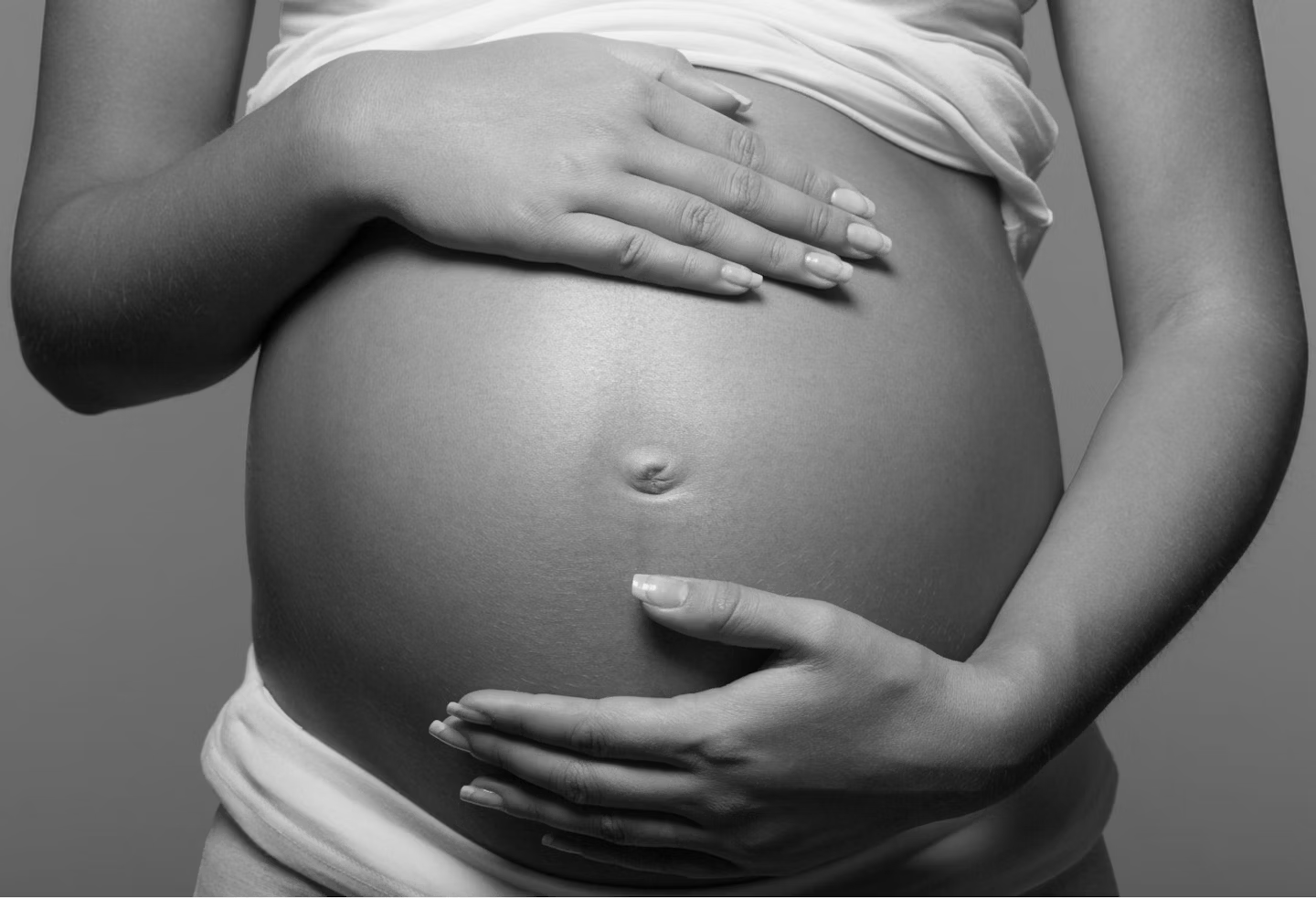
Understanding how your baby bump progresses week by week can help you connect with your growing baby. Here’s a general timeline of what to expect:
12 weeks: Your baby is about the size of a small plum (around 2 inches). This is usually when many women start to notice their bump!
16 weeks: Your baby has grown to the size of an avocado. You might see more noticeable changes in your belly.
20 weeks: Your baby is now about the size of a banana (approximately 6.5 inches), and your bump is likely more prominent.
24 weeks: Expect significant growth—your baby is nearly a foot long, similar in size to an ear of corn.
28 weeks: Your little one is about the size of a lettuce head . Your bump will continue to round out.
32 weeks: Your baby is growing quickly, reaching about the size of a pineapple (around 16.7 inches).
36 weeks: You could be carrying a papaya-sized baby! At this stage, the baby can weigh around 6 pounds or more.
40 weeks: Congratulations! Your baby is ready to meet you, and they could be anywhere from 7 to 10 pounds.
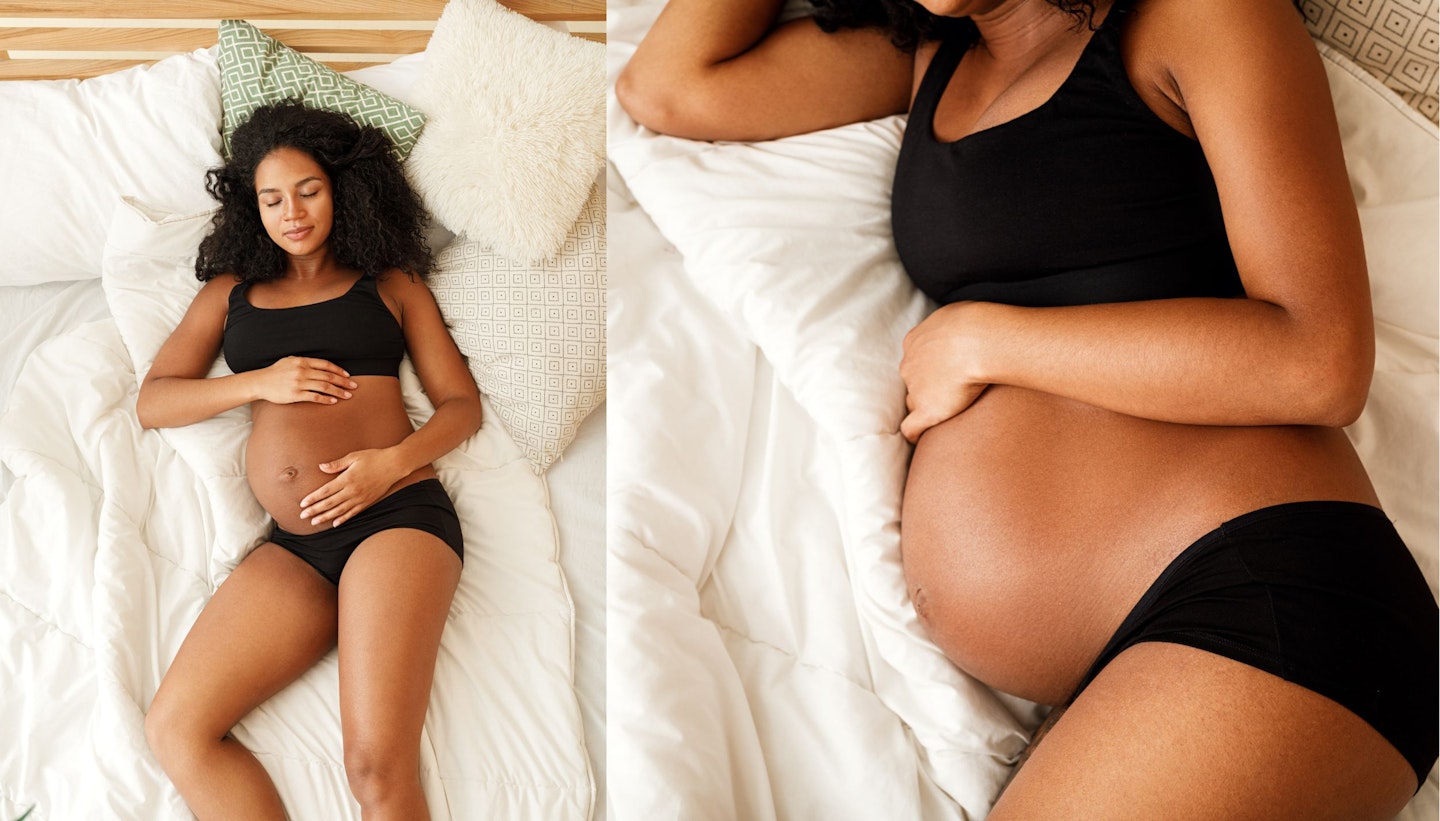
Are there specific early signs that might indicate when a woman is starting to show?
From an orthopaedic perspective, Dr. Donald explains, “Changes to posture occur to maintain balance and compensate for the weight shift. This, alongside pelvic tilt, can lead to lower back and hip pain, impacting musculoskeletal health.” Hormonal changes from pregnancy can also leave women more susceptible to joint pain and injury due to joint loosening, known as joint laxity.
Specific early signs related to posture or joint discomfort might also indicate when a woman is starting to show. Dr. Donald notes, “Increased lumbar lordosis, an inward curvature of the lower back, helps balance but can lead to back pain. Knee pain is another indicator of baby growth, often followed by a larger bump. Increased levels of fatigue and abdominal cramping are natural signs as the baby continues to grow, leading to a visible bump starting to show.”
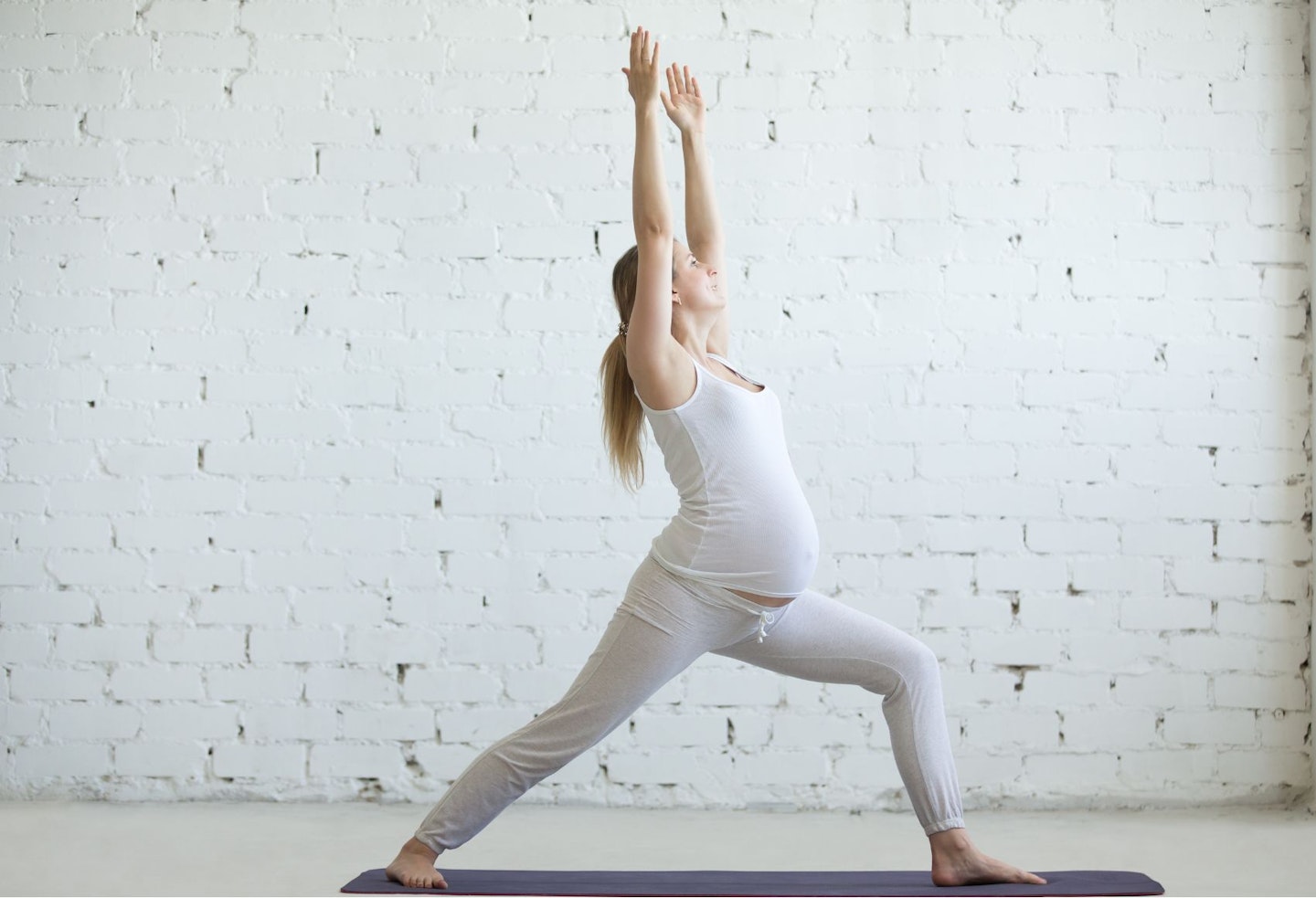
Feeling good about your body when you start showing in pregnancy
Pregnancy can bring a whirlwind of emotions and changes to your body. Here are some body positivity tips from Elle Mace, Positive Psychology Coach.
Practice self-compassion
Embrace your body’s changes as a natural part of nurturing new life. Remind yourself that it’s okay to feel a range of emotions during this journey.
Invest in maternity fashion
Wear clothes that make you feel pretty and confident. Opt for styles that highlight your bump and allow for comfort—after all, looking good can help you feel good! Here’s Pregnancy dressing tips and must-have staples for every expecting mum
Focus on nutrition
Maintain a balanced diet and engage in safe exercises like prenatal yoga to stay connected to your body.
Indulge in relaxation
Treat yourself to gentle massages, baths, and other soothing activities to promote relaxation.
Prioritise rest
Allow yourself to relax without guilt. Listen to your body and take breaks when needed.
Limit weigh-ins
Avoid the temptation to weigh yourself constantly, as it can lead to increased self-consciousness. Rely on your OB-GYN for regular check-ups.
Seek support
If body image issues arise, don’t hesitate to reach out to professionals who can provide strategies and support.
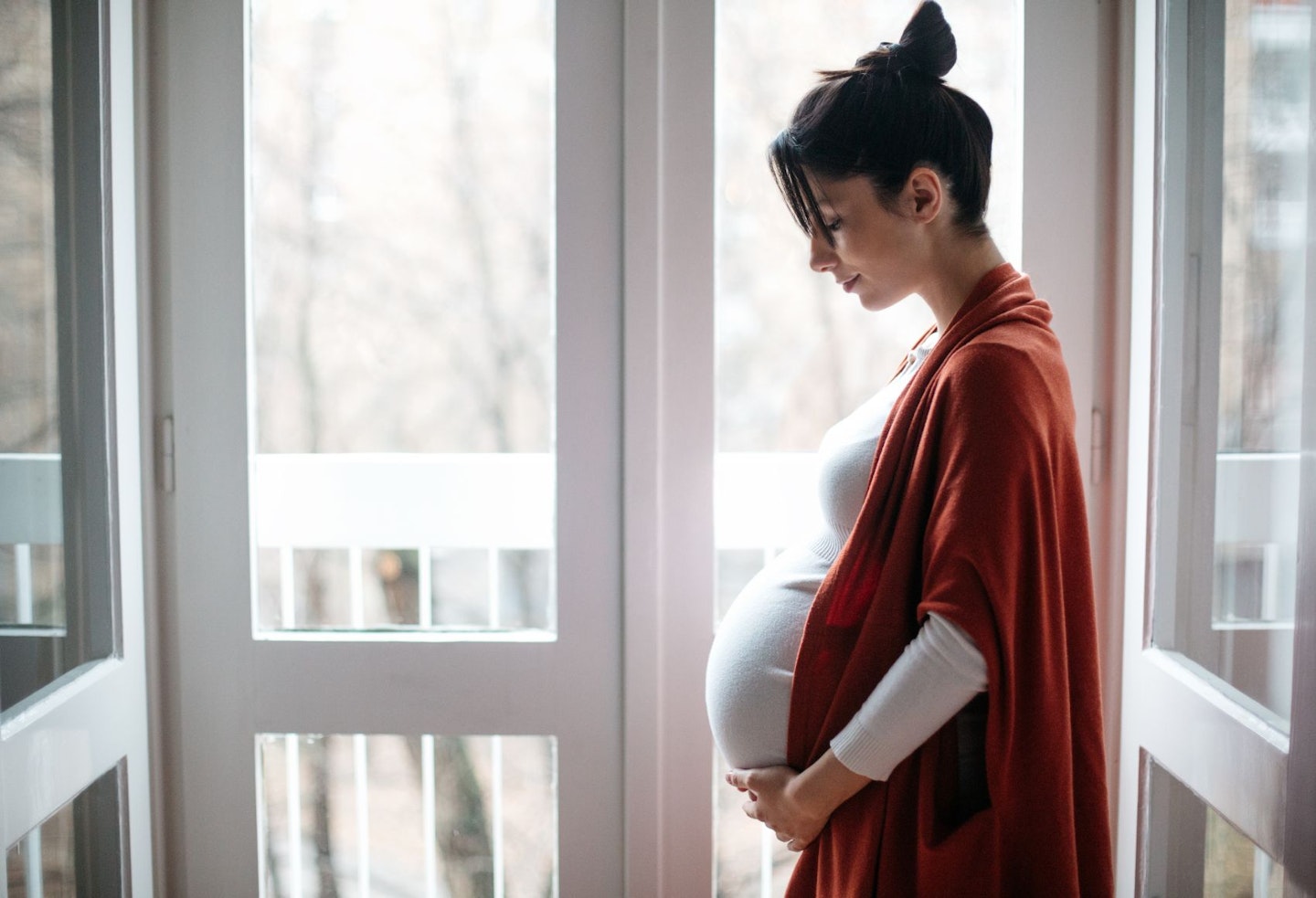
FAQs
When should you expect your baby bump to show?
Most women begin to show between 12 and 16 weeks, but this can vary based on factors like body type and whether it's your first pregnancy.
How do you know if it's a baby bump you see?
A baby bump is usually firm and rounded, contrasting with typical bloating or weight gain. It often becomes more noticeable as your pregnancy progresses.
Can a baby bump show at 1 month?
At one month (around 4 weeks), many women may not have a noticeable bump, but some might experience bloating or changes that can make their belly appear slightly rounder.
About the experts
Louise Broadbridge, known as The Honest Midwife, is a prominent UK midwife with over 30 years in healthcare. Her extensive experience spans both hospital and community settings, offering a deep understanding of labour, birth, and postnatal care. Known for her candid and often humorous approach, Louise addresses both the joys and challenges of childbirth, offering practical advice grounded in clinical expertise.For more, follow her on Instagram or visit her website to book a free class.
Dr Amit Shah is a leading gynaecologist and co-founder of Harley St. clinic Fertility Plus. He is a member of the Royal College of Obstetricians and Gynaecologists. After 25 years of commitment to the NHS, Dr. Shah now works exclusively privately and remains involved with research and development of science. He has a major interest in treating egg donor IVF, surrogacy, and sperm donation treatments in addition to fertility treatments and fertility-preserving surgeries, including the treatment of endometriosis and assisted conception and egg freezing.
Dr Donald Grant is a GP and senior clinical advisor at The Independent Pharmacy. Dr Donald has wide clinical experience as a GP in and around Bristol. He has a particular interest in orthopaedic medicine. Don is the senior clinician at The Independent Pharmacy and is responsible for clinically overseeing online pharmacy service.
Elle Mace is a master practitioner and therapeutic coach. Her practice focuses on empowering individuals through understanding and navigating various aspects of physical and emotional well-being. She holds ILM Level 5 Coach and Mentor qualification and has expertise in life coaching, positive psychology, menopause, relationships, neuroscience, and self-worth.
About the author
Anne Lora Scagliusi is a Senior Digital Writer at Mother & Baby. She is a Scotland-based journalist with over a decade of international writing experience, specialising in women’s health, maternal mental health, and wellness. Her work has been featured in Vanity Fair, Marie Claire, and Glamour and has appeared on several Vogue global editions. She is mum to a one-year-old bambino and lives between Italy and the UK. You can follow her on Instagram.
